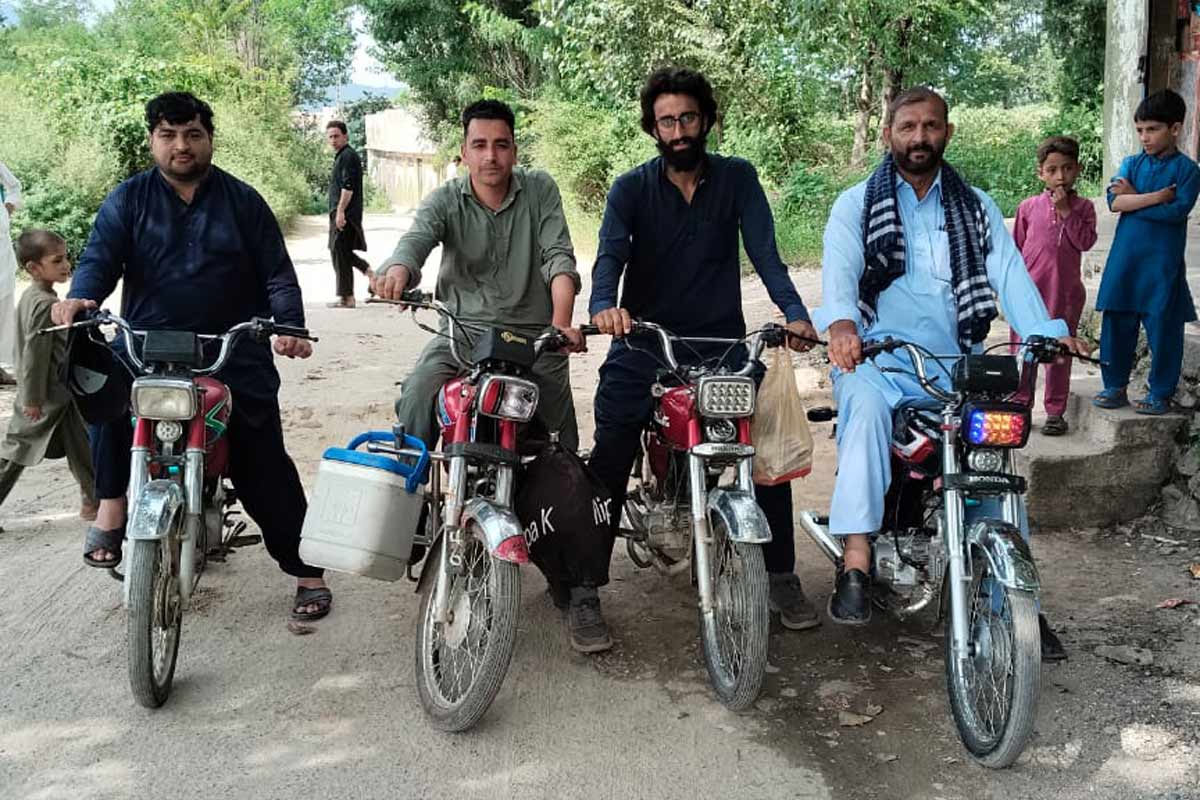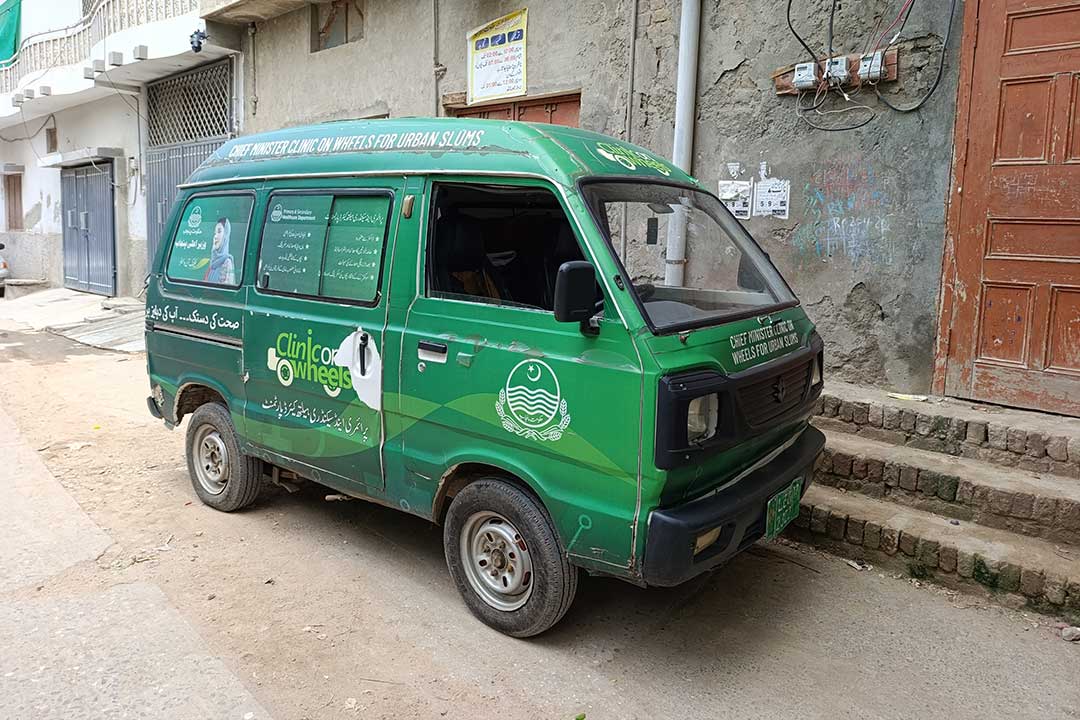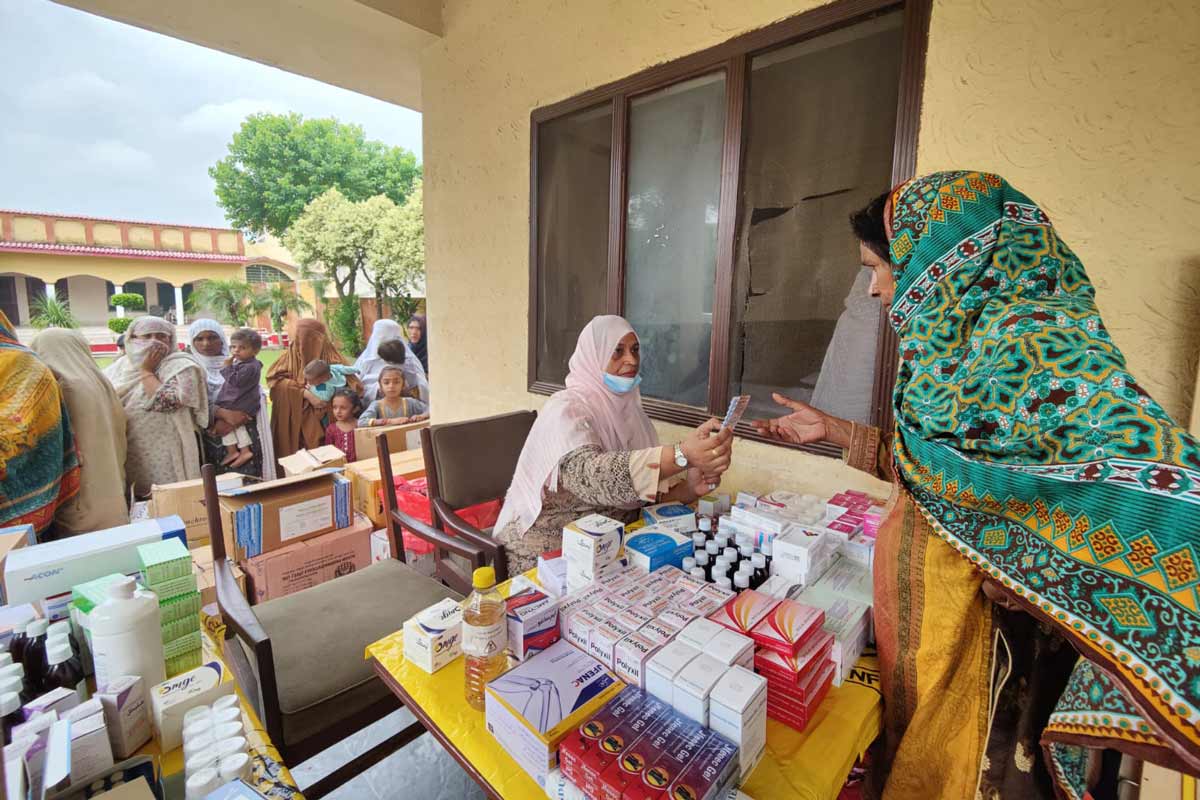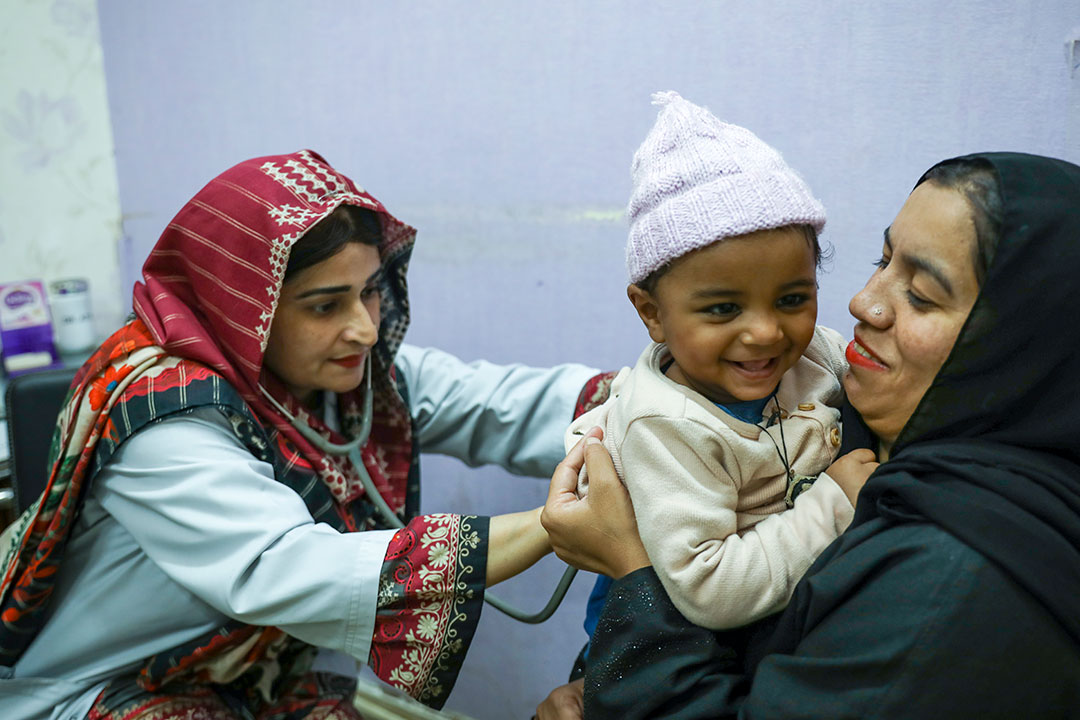Pakistan is working with Rotary to eradicate polio
Pakistan is on a mission to get polio back under control following an increase in cases. Rotary International is playing a key role.
- 31 October 2022
- 4 min read
- by Rahul Basharat Rajput
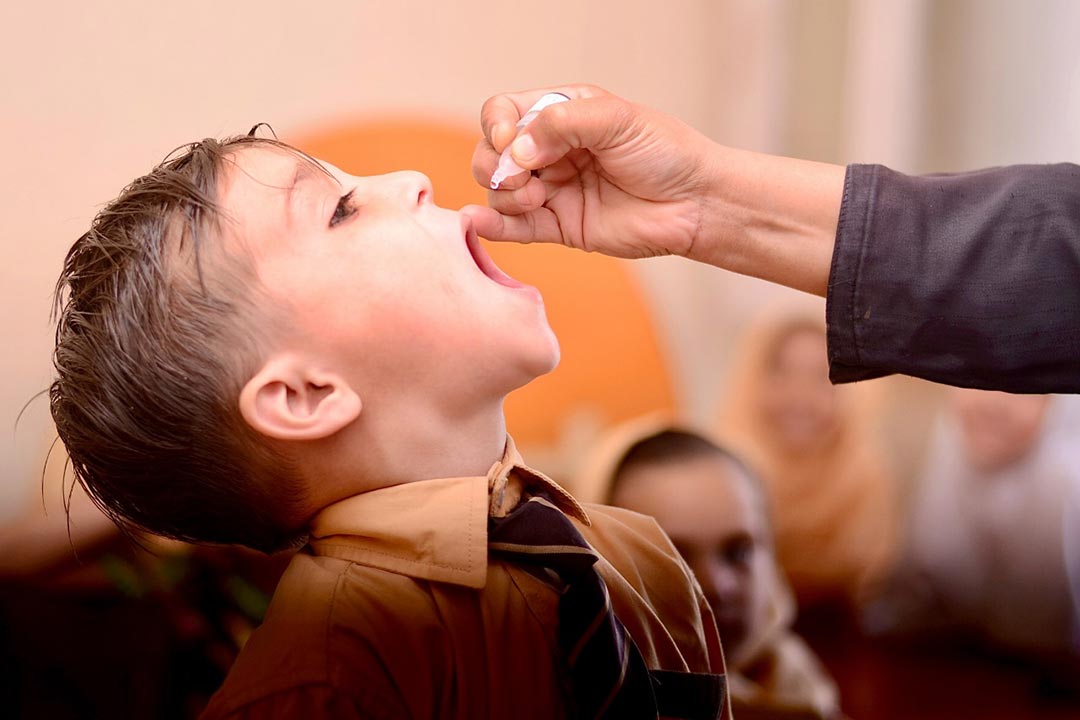
Shahzeb Khan, a frontline polio worker in Pakistan’s Khyber Pakhtunkhwa province, dreams of polio eradication.
But, according to Pakistan’s Polio Eradication Programme (PPEP), after a gap of 15 months the country has reported 20 wild poliovirus cases in 2022, all in Khyber Pakhtunkwa. The sudden surge of cases has alarmed the national and international institutions working to end the spread of the virus in the country.
“We have the strategy and the tools necessary to eradicate polio, and it is critical that we ensure it is well funded."
Khan says that, despite the availability of vaccines, there are serious challenges due to the remote and ultra-conservative populations in the province.
“People are still sceptical about the poliovirus vaccine and continuous migration, along with the porous border with Afghanistan, are becoming major causes behind resurgence of the virus,” he says.
He adds that, during door-to-door campaigns in ultra-conservative areas people do not always cooperate. Changing people’s behaviour regarding the polio vaccine is not easy.
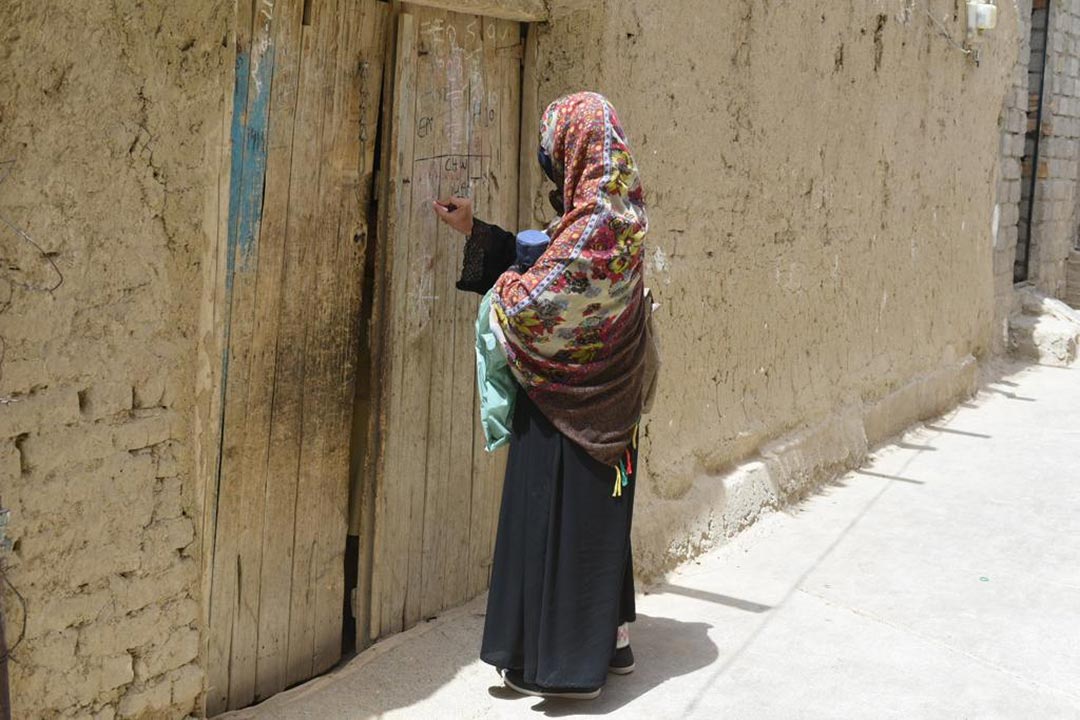
Credit: Ministry of National Health Services
“Behind the administration of every polio drop there is a lot of effort at national and international level, including religious clergy and international organisations,” he says.
Rotary International is one such organisation that has been working for decades to end polio in Pakistan. Rotary is one of the founding partners of the Global Polio Eradication Initiative (GPEI), established in 1988, and has contributed more than US$ 2.6 billion to end polio with a focus on fundraising, advocacy and mobilising volunteers.
Chair of Rotary Pakistan’s National PolioPlus Committee Aziz Memon explains that GPEI’s strategy is focused on stopping transmission of all polioviruses – wild poliovirus (WPV) and circulating vaccine-derived poliovirus (cVDPV) – in Afghanistan and Pakistan, and stopping transmission of cVDPV in outbreak countries.
Have you read?
- The endgame: What will it take to eradicate polio?
- How to Eradicate Polio? Funds+Vaccines+Access+Equity+Enthusiasm!
- Dial-a-vax: Pakistan’s 1166 helpline has answers for the country’s vaccine questions
He says that in Pakistan the programme works closely with the national government to improve the management and operation of polio vaccination campaigns, to better reach high-risk populations through targeted community engagement. It also works to integrate polio activities with other health services and social programmes, as well as helping female health workers and religious leaders in building community trust and improving vaccine acceptance.
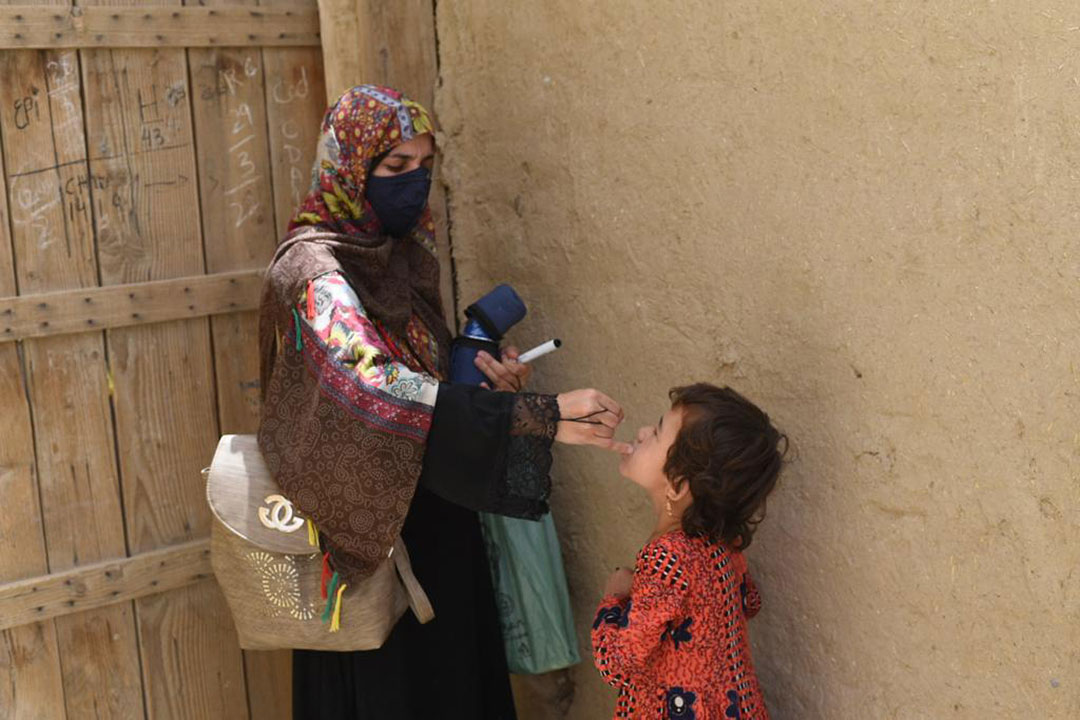
Credit: Ministry of National Health Services
Rotary’s polio programme has established nine resource centres, 15 team support centres and 51 Permanent Transit Points (PTP) across the country to target missed children. Two hundred thousand vaccine transport units have been provided to the government’s Polio Eradication Initiative (PEI) and 23 Permanent Immunisation Centres (PIC) set up to improve routine immunisation.
“We are close to our mission of ending polio. We want the world to stand with us.”
“We regularly hold religious workshops in which we work with religious scholars to build community trust and convey vaccine safety and efficacy in communities around Pakistan,” he says.
Talking about Rotary’s work since the recent polio cases were reported, Aziz Memon says that the National Emergency Operations Centres of Afghanistan and Pakistan are working together to implement a strategy to vaccinate all children under ten at major transit points/border areas in southern Khyber Pakhtunkhwa as this area is home to some of the more high-risk mobile populations.
“We have the strategy and the tools necessary to eradicate polio, and it is critical that we ensure it is well funded. The cost of the initiative is US$ 4.8 billion,” says Memon.
Memon says that, at the Global Citizen Festival on 24 September, Rotary committed $150 million to the GPEI to help fund the strategy, and world leaders gathered to re-commit to the GPEI at the World Health Summit in Berlin on 18 October.
He remains optimistic because despite the challenges, all of which were exacerbated by the pandemic, wild polio cases in the country remain lower than those recorded in 2020.
“We have a window of opportunity to stop transmission of wild polio for good and so, ultimately, we must redouble our commitment to deliver on our promise of a polio-free world,” he says.
Pakistan’s Federal Minister for the Ministry of National Health Services Regulations and Coordination, Abdul Qadir Patel, has reaffirmed the government’s commitment to the eradication of polio in the country, noting that despite the recent floods, polio vaccination campaigns in the country continued.
“We are close to our mission of ending polio. We want the world to stand with us,” Minister Patel says.
